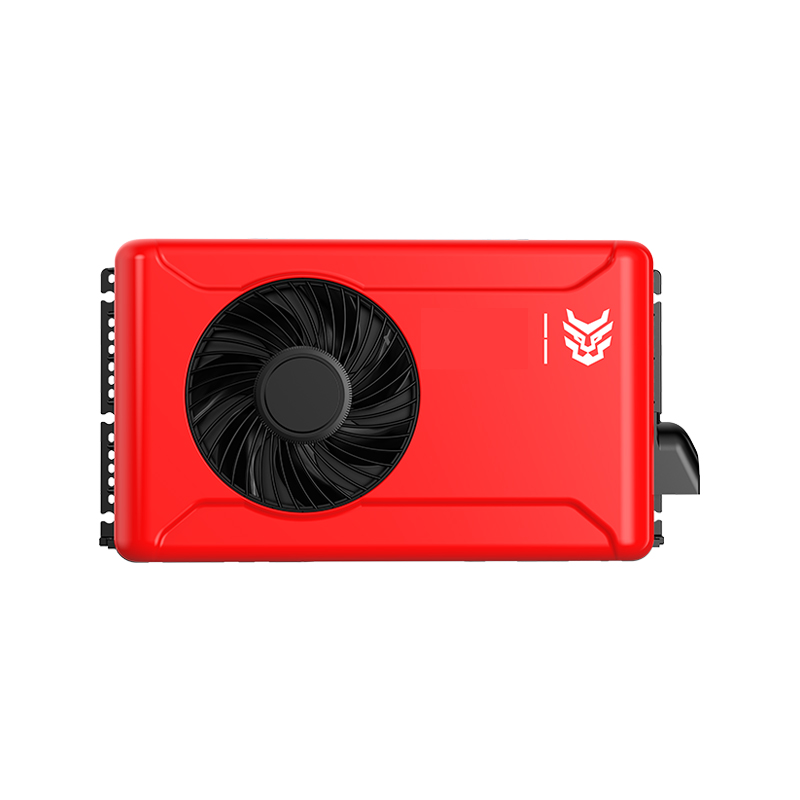The thing to consider when choosing a 12-volt air conditioner for camper is the cooling capacity. Cooling power is typically measured in BTUs (British Thermal Units). The size of your camper plays a major role in determining how many BTUs are needed. Smaller campers, like pop-up campers or teardrop trailers, may only need a 5,000 to 8,000 BTU unit, while larger RVs or campers may require more power. As a general rule of thumb, for every 100 square feet of camper space, you'll need approximately 5,000 BTUs of cooling.

Since 12-volt air conditioners run off your vehicle's electrical system or batteries, it's essential to consider their energy consumption. Opt for a unit that balances performance with power efficiency, especially if you plan on relying on solar panels or a battery system. Some models are designed to minimize power draw, which is particularly helpful during long trips or while camping off the grid.
To make sure you're choosing the energy-efficient unit, look for those with inverter technology. These systems adjust their compressor speed based on cooling demand, which can save power without compromising on cooling performance.
Another important factor when choosing a 12-volt air conditioner for your camper is the noise level. You'll want a unit that cools efficiently without disrupting your peace and quiet. Many modern units are designed to run quietly, but it's always a good idea to check reviews and product specifications to get an idea of noise levels before purchasing.
The size and design of the unit matter, especially in campers where space is limited. Some 12-volt air conditioners are designed to be mounted on the roof, while others are portable or window-mounted. Roof-mounted units generally offer better cooling performance and save interior space, but they require professional installation. Portable or window-mounted units may be easier to install but could take up precious floor or window space.
Truck trailer air conditioners are essential for maintaining a comfortable environment, especially for long-haul truck drivers who spend extended periods inside their cabs. Regular maintenance of your truck trailer air conditioner unit ensures that it runs efficiently, preventing breakdowns and costly repairs. Here's a guide to maintaining your truck trailer's air conditioner unit.
The air filter in your truck trailer air conditioner unit plays a crucial role in maintaining air quality and ensuring that the system operates effectively. Over time, the filter can become clogged with dust, dirt, and debris, which can limit airflow and cause the air conditioner to work harder than necessary. This can overheating and reduced cooling performance.
Check the filter regularly, especially before and after long trips, and replace it if necessary. Many air conditioner filters can be easily cleaned or replaced by following the manufacturer's guidelines. Ensuring the filter is in good condition helps maintain airflow and can extend the lifespan of your unit.
The evaporator coils and condenser coils are essential for the cooling process. Over time, these components can accumulate dirt, debris, and grime, which can reduce their efficiency. If the coils are dirty, the air conditioner will have to work harder to cool the air, which can result in higher fuel consumption and quicker wear on the system.
Use a soft brush or coil cleaner to gently clean the coils. Be careful not to damage the fins, as they are delicate and can bend easily. If you're unsure about how to clean the coils properly, it's a good idea to consult a professional or refer to your unit's manual for detailed instructions.
The refrigerant in your truck trailer air conditioner is what enables the unit to cool the air. If the refrigerant level is low, the air conditioner will not perform as effectively, poor cooling and potential damage to the compressor. Low refrigerant levels can also indicate a leak, which should be repaired immediately to prevent further issues.
To check the refrigerant level, consult your vehicle's manual or have a professional technician inspect it. If necessary, a licensed technician can recharge the refrigerant and repair any leaks to restore the unit's cooling power.